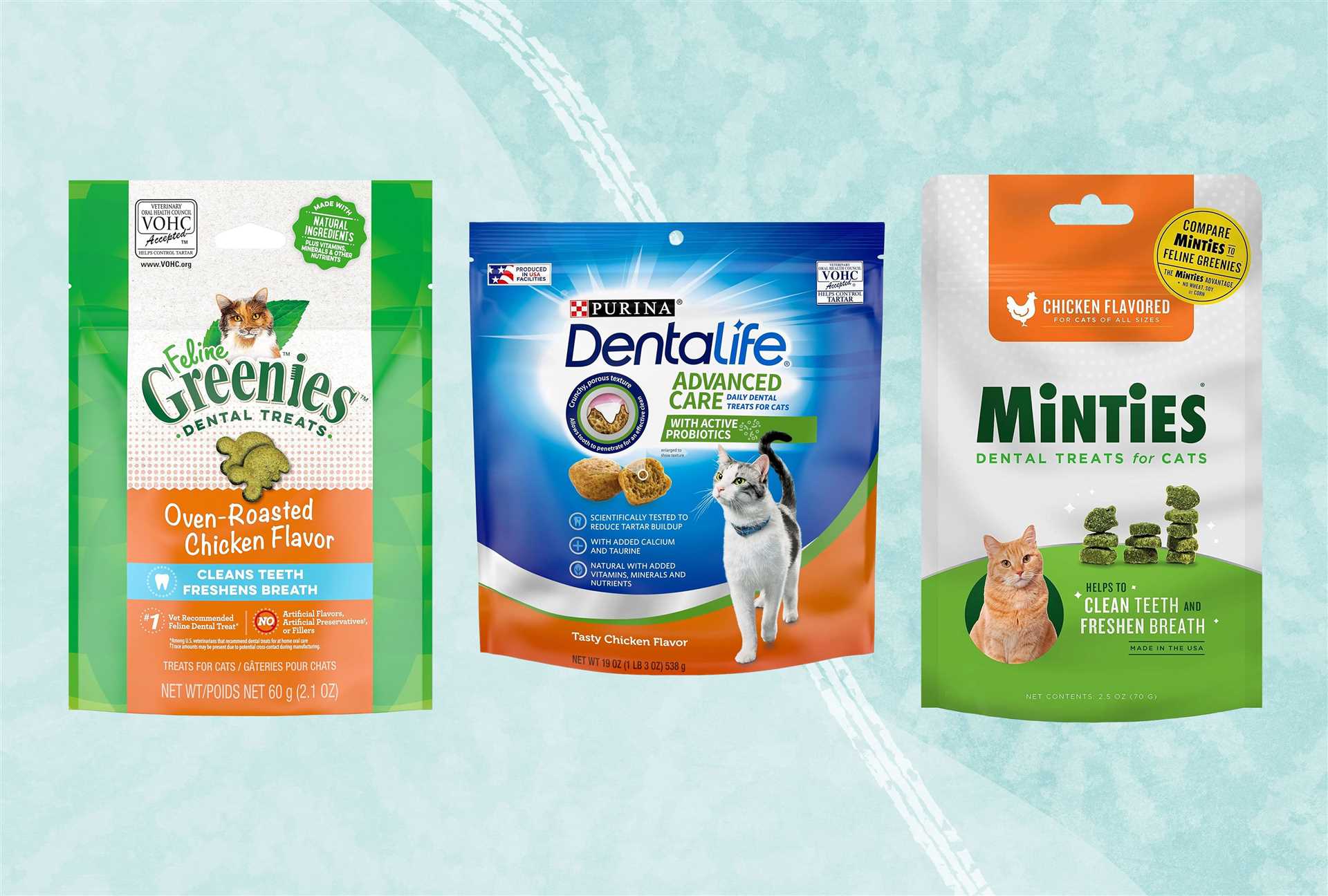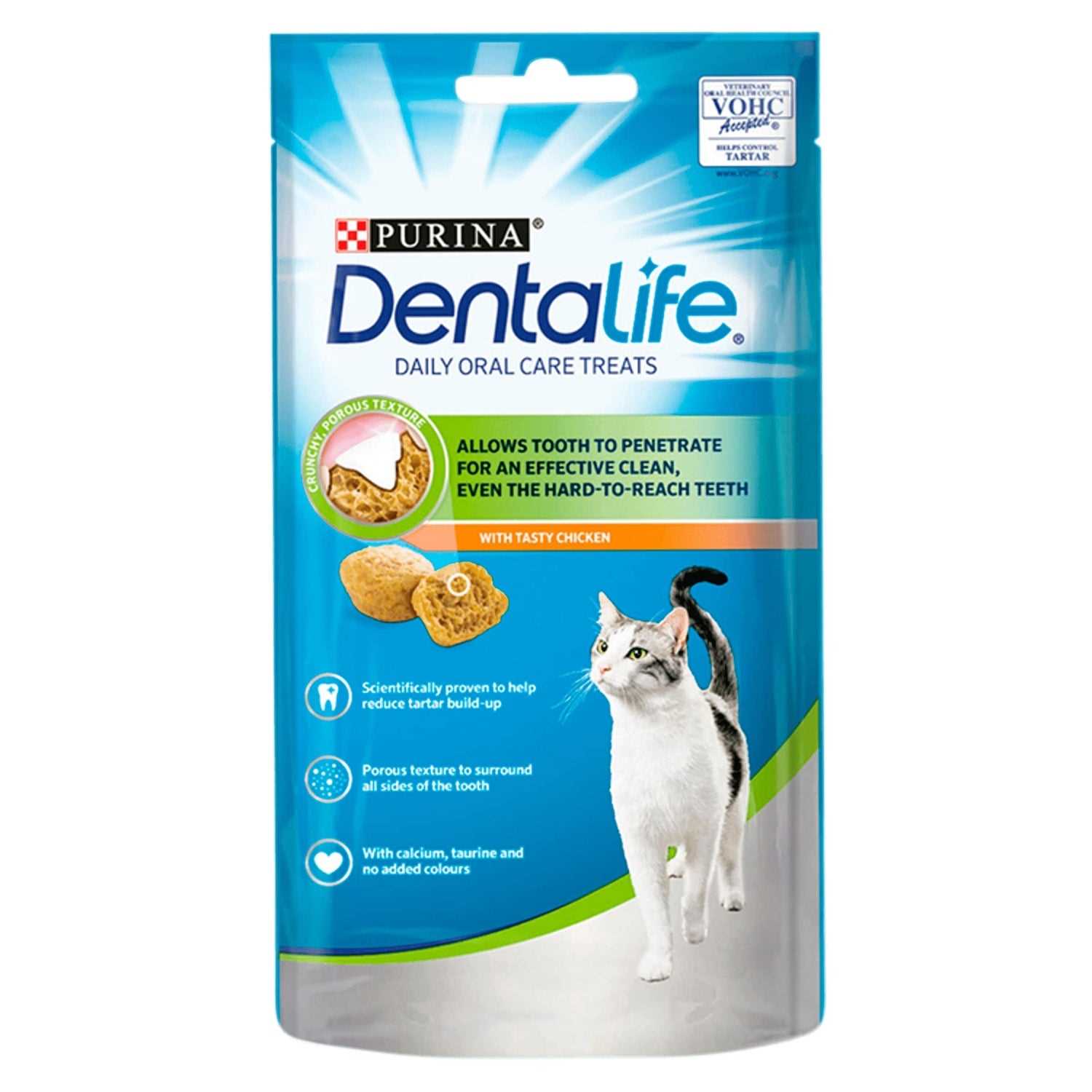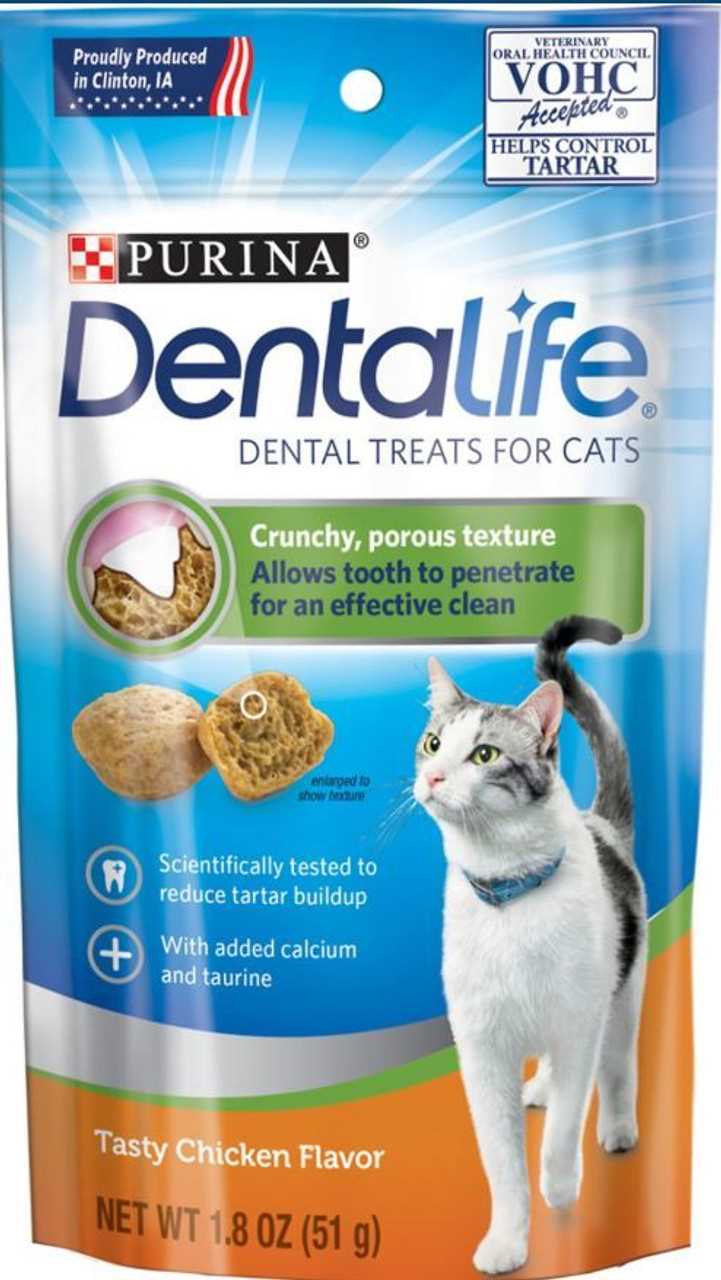As an 8-year-old Scottish Fold, I can confidently say that incorporating specific dental care snacks into my diet has been beneficial. These specialized morsels can help reduce plaque and tartar buildup, promoting healthier gums and fresher breath. It’s essential for every feline to maintain optimal oral hygiene, and these tasty options serve as an enjoyable way to do just that.
Many of my fellow furballs have shared their experiences, and the consensus seems to be that these snacks not only tantalize our taste buds but also contribute positively to our dental health. Look for products with the Veterinary Oral Health Council (VOHC) seal, ensuring they meet established efficacy standards. Regularly incorporating these into my routine has made visits to the vet much less daunting.
While indulging in these snacks, it’s also crucial to monitor the overall diet. Balance is key; these goodies should complement, not replace, regular meals. Always check with a veterinarian to tailor a dental care regimen that suits individual needs and lifestyle. Trust me, a healthy mouth leads to a happier cat!
Are Dental Chews Beneficial for My Feline Friends?
Absolutely! Chewing on these specialized snacks can significantly aid in maintaining oral hygiene. They help reduce plaque and tartar buildup, which is essential for preventing gum disease and maintaining fresh breath.
Ingredients to Look For

When selecting these snacks, check the ingredient list. Look for natural components like chicken, fish, or vegetables. Avoid artificial additives and excessive fillers. A high protein content is a plus, as it supports overall health.
Recommended Brands
| Brand | Features |
|---|---|
| Greenies | Veterinarian recommended, crunchy texture, available in different flavors. |
| Hill’s Science Diet | Formulated for dental health, made with high-quality proteins. |
| Purina Pro Plan | Contains unique kibble shape designed to reduce plaque and tartar. |
Introducing these snacks gradually into my diet ensures they adapt well. Always monitor for any signs of allergies or digestive issues. Regular vet check-ups should accompany any changes in diet.
Understanding the Ingredients in Dental Chews

Choosing the right snacks for maintaining oral hygiene involves scrutinizing the components. Look for products that list high-quality proteins as primary ingredients. Chicken, fish, or lamb should take precedence, as they contribute essential amino acids and are generally well-received by us felines.
Avoid those containing artificial flavors or preservatives. Natural ingredients not only support health but also enhance the flavor, making them more appealing. Grain-free options are preferable, especially for sensitive tummies, as grains can sometimes cause digestive issues.
Beneficial Additives
Some formulas include dental-specific additives like sodium hexametaphosphate or chlorophyll. These compounds can help reduce plaque and tartar buildup, promoting healthier gums. Additionally, omega-3 fatty acids from fish oil can provide anti-inflammatory benefits, contributing to overall well-being.
Potential Red Flags
Be cautious of high carbohydrate content, particularly from sources like corn or wheat. Such ingredients might lead to weight gain and do little for dental health. Always check the calorie count, as it can vary significantly between different brands. Balancing calorie intake with physical activity is crucial for maintaining a healthy weight.
How These Chewables Impact Feline Oral Health

Chewing on specially designed goodies has a direct influence on my oral hygiene. The texture of these snacks helps to scrape away plaque and tartar, promoting healthier gums and teeth. This mechanical action is essential for preventing periodontal disease, which can be quite painful and lead to more severe health issues if ignored.
It’s crucial to choose products that have been approved by veterinary dental associations. These endorsements ensure that the formulation has been tested for its ability to reduce plaque buildup effectively. I personally prefer options that include ingredients like sodium hexametaphosphate, which actively works to prevent tartar formation.
Portion control matters too. Overindulgence can lead to weight gain, which may complicate dental health further. A balanced approach keeps my overall well-being in check while still allowing me to enjoy these delightful bites. Regular consumption, paired with routine vet check-ups, can significantly enhance my dental status.
Incorporating these munchies into my daily routine also encourages me to engage in chewing, which is naturally satisfying and mentally stimulating. Chewing is not just about enjoyment; it serves a purpose in maintaining my oral health and keeping my teeth in peak condition.
Evaluating Different Brands of Dental Chews
When it comes to keeping my pearly whites in check, I’ve tried a variety of options. Some brands stand out, making my munching experience enjoyable while also promoting oral hygiene. One brand I found particularly beneficial is Greenies. Their formula is designed to reduce plaque and tartar buildup effectively. Plus, they come in flavors that make snacking a treat.
Brand Comparisons
An exciting alternative I discovered is Vet’s Best. Their chews combine natural ingredients like aloe and neem oil, which not only taste great but also support gum health. This blend often leaves my breath fresher than before, which is an added bonus for my human!
Choosing Wisely
It’s essential to read labels carefully. Some options contain artificial additives or high levels of carbohydrates that might not be suitable for all felines. I recommend checking out dental chews for cats for a detailed review of the best choices available. This way, you can make informed decisions that align with your health needs.
In the end, the right choice can make a significant difference in maintaining a healthy mouth while enjoying those crunchy bites. Always consult with your vet to find the best fit for your unique needs!
Frequency and Quantity: How Much to Give?
Based on my experience, a couple of pieces daily is the sweet spot for maintaining my dental health without overdoing it. This amount keeps my teeth clean while preventing any tummy troubles. Always check the packaging for specific guidelines, as different brands may suggest varying amounts.
Daily Recommendations
A daily serving of one to three pieces works well for most felines like me. If you’re unsure, start with one and observe how it affects my digestion and energy levels. Adjust accordingly, but keep it within a reasonable range to avoid excess calories.
Monitoring Reactions
Pay attention to how I react after munching. If I seem more playful or my breath smells fresher, that’s a good sign! However, if I show signs of discomfort, it might be time to reduce the quantity. Always prioritize my well-being over following any strict rules.
Lastly, incorporating these crunchy delights into my routine can be a fun way to bond. Just make sure it’s not a substitute for regular vet visits and proper dental care!
Alternatives to Dental Treats for Cat Dental Care
Raw meaty bones are a fantastic option. They encourage chewing and naturally help scrape off plaque and tartar. Always supervise during mealtime to prevent choking, and consult your human about appropriate sizes.
Dental chews made from natural ingredients provide similar benefits. Look for options containing ingredients like green tea extract or baking soda, which can help reduce bad breath and promote oral hygiene.
Regular brushing is another excellent practice. Using a cat-specific toothbrush and toothpaste designed for felines makes this routine easier. Start slowly, allowing me to get used to the sensation and taste.
Water additives can also support oral health. These products are mixed into drinking water and help reduce plaque formation while freshening breath. Just ensure that the additive is safe and approved by veterinarians.
Offering crunchy kibble can aid in mechanical cleaning. Dry food can help in breaking down plaque, but it shouldn’t replace a balanced diet. Choose high-quality options with dental health benefits in mind.
Providing dental toys designed for chewing can also be beneficial. These toys come in various textures and shapes, encouraging play while promoting oral care. Just make sure they are durable and safe for chewing.
Signs Your Cat Might Need a Vet Visit for Dental Issues
If you notice any of the following signs, it’s time to schedule a visit to the veterinarian.
Common Indicators
- Bad breath that persists despite regular oral care.
- Excessive drooling or difficulty swallowing.
- Red or swollen gums that seem painful.
- Loss of appetite or hesitation while eating.
- Visible tartar buildup or discolored teeth.
Behavioral Changes
- Increased irritability or aggression when handling the mouth area.
- Withdrawal from social interactions or favorite activities.
- Frequent pawing at the mouth or face.
Addressing dental health is crucial for overall well-being. If these symptoms arise, don’t hesitate to seek professional help. Also, if you’re interested in maintaining a healthy environment for your aquatic pets, check out this article on how to lower water hardness in freshwater aquarium.






